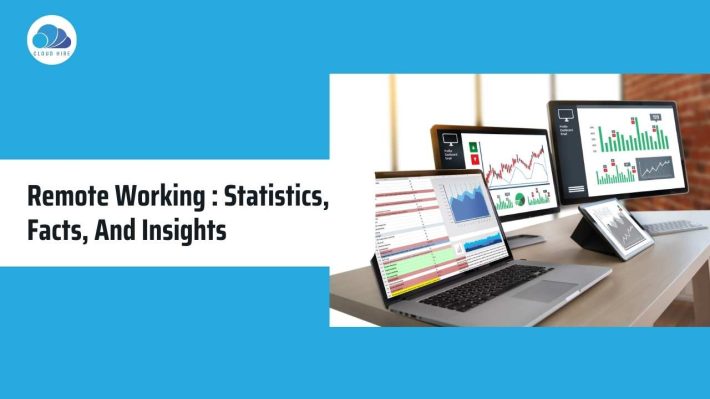As we approach the end of yet another year, many business owners are assessing their operations and looking for ways to make improvements. One area that’s often overlooked but can have a significant impact on your bottom line is payroll management.
In this blog post, we’ll explore how outsourcing payroll in 2023 could unlock the potential of your business and help you streamline operations, avoid costly mistakes, and increase efficiency. Get ready to take your business to the next level!
What Is Outsourced Payroll and How Does It Work?
Outsourced payroll is when a company hires a third-party provider to manage its payroll processes. This can include tasks such as calculating employee pay, preparing and issuing paychecks, and handling payroll tax filings.
There are many benefits to outsourcing payroll, including freeing up time for business owners and HR staff to focus on other priorities, reducing the risk of errors and compliance issues, and access to expert advice and support.
When choosing a payroll provider, it’s important to evaluate your needs and compare different providers to find the best fit for your business. Once you’ve selected a provider, they will walk you through the setup process and help get your employees set up on their system.
Payroll Outsourcing in 2023: The Ultimate Guide
Reasons Why Outsourcing Payroll is Beneficial for Your Business?
There are many reasons why outsourcing payroll is beneficial for businesses. Perhaps the most obvious benefit is that it can save the business money. By outsourcing payroll, businesses can avoid the high costs associated with maintaining an in-house payroll department, including employee salaries, benefits, and overhead costs.
Another benefit of outsourcing payroll is that it can free up time for business owners and managers to focus on other aspects of running the business. Maintaining an in-house payroll department can be time-consuming and complex, but when you outsource payroll, you can trust that experts are handling it for you. This leaves you with more time to focus on developing your product or service, marketing your business, and growing your customer base.
Outsourcing payroll can also help businesses stay compliant with government regulations. Payroll tax laws are constantly changing, and if you’re not keeping up with the latest changes, you could be at risk of penalties or interest charges. When you outsource payroll, you can trust that experts are handling compliance for you so that you don’t have to worry about it.
Finally, outsourcing payroll can give businesses access to features and capabilities that they might not be able to afford with an in-house solution. For example, many outsourced payroll providers offer online portals where employees can view their pay stubs and access their W-2 forms 24/7. This convenience is something that businesses might not be able to provide on their own.
Related: How Outsourcing Accounting Work Can Help Your Company?
How to Choose the Right Payroll Service Provider for Your Business Needs?
There are many different payroll service providers out there, and it can be difficult to know which one is right for your business needs. Here are a few things to consider when choosing a payroll service provider:
The size of your business: Small businesses have different payroll needs than large businesses. Make sure the payroll service provider you choose can accommodate the size of your business.
The type of business: Different businesses have different payroll needs. For example, a retail business will have different needs than a manufacturing business. Make sure the payroll service provider you choose specializes in serving businesses like yours.
Your specific needs: Every business is unique and has its own specific payroll needs. Make sure the payroll service provider you choose can meet all of your specific needs.
The price: Payroll services can be expensive, so make sure you compare prices before choosing a provider. However, don’t choose a provider solely based on price – make sure they can also meet all of your other criteria as well.
Understanding The Cost of Outsourcing Your Payroll:
Your business is only as strong as your bottom line. So, when it comes to making the decision to outsource your payroll, you need to understand the cost. Here are a few things you should take into account:
The Initial Investment:
When you first outsource your payroll, there will be an initial investment. This typically includes a setup fee and a monthly service fee. The setup fee covers the cost of getting everything set up and configured for your specific business. The monthly service fee covers the ongoing costs of maintaining your account and processing your payroll.
The Cost of Employees:
In addition to the initial investment, you also need to factor in the cost of your employees. If you have a large workforce, then you may need to purchase additional licenses or pay per-employee fees. These fees can add up quickly, so it’s important to calculate them into your overall budget.
The Cost of Compliance:
Compliance is a critical part of any payroll process. Outsourcing providers typically charge extra for compliance-related services, such as tax filing and reporting. These fees can vary depending on the provider, so be sure to ask about them upfront.
The Hidden Costs:
There are always hidden costs associated with any type of business expense. With payroll outsourcing, these hidden costs can include things like data security and data backup fees. Be sure to ask about these types of fees before signing on with a provider.
Processing & Compliance Considerations When Outsourcing Payroll:
When outsourcing payroll, there are a few key processing and compliance considerations to keep in mind. First, you’ll want to make sure that your payroll provider can handle all of the necessary tax filings and reports. This includes federal, state, and local taxes, as well as any other reports that may be required by your specific industry or region.
Your payroll provider should also have a robust system in place for tracking employee hours worked, vacation and sick time accruals, and other important data points. This will ensure that all employees are paid correctly and on time, while also keeping your business compliant with relevant laws and regulations.
Finally, you’ll want to confirm that your chosen payroll provider offers direct deposit options for employees. This not only makes life easier for your employees but can also help you save on check printing and mailing costs.
Pros & Cons of Outsourcing Payroll:
When it comes to deciding whether or not to outsource payroll for your business, it’s important to weigh the pros and cons. On one hand, outsourcing payroll can free up time for you and your employees to focus on other aspects of running the business. On the other hand, you’ll need to be comfortable entrusting such an important task to another company. Here’s a closer look at some of the key pros and cons of outsourcing payroll:
Pros:
- Outsourcing payroll can save you time.
- Outsourcing payroll can save you money.
- Outsourcing payroll can help you avoid compliance pitfalls.
- Outsourcing payroll can give you access to experts.
Cons:
- You’ll need to find a reputable company to outsource to.
- There may be a learning curve as you get used to working with a new company.
- You’ll need to be comfortable entrusting such an important task to another company.
Conclusion:
Outsourcing payroll services can help businesses unlock the potential of their business. It offers a range of benefits, from reducing costs to freeing up resources for other activities.
In 2023, the impact of outsourcing payroll will be even more evident as technology advances and many firms are already taking advantage of this trend.
By utilizing a secure third-party provider that is dedicated solely to fulfilling your payroll needs and providing your organization with all the necessary tools and expertise required for accurate compliance, businesses can stay ahead in today’s ever-changing environment by ensuring maximum efficiency











